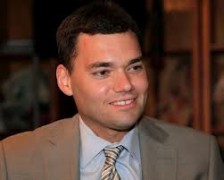A progressive Zionist voice rang out clearly and strongly on Oct. 6, the 40th anniversary of the outbreak of the Yom Kippur War, as the inaugural national conference of JSpace Canada took place at the University of Toronto.
Founded in 2010 by members of the First Narayever Congregation, JSpace Canada provides a boldly alternative voice within Canada’s Jewish community.
As Issie Lyon, a JSpace Canada spokesperson, put it, “We are an alternative to the pro-Israel right and the anti-Israel left. We want to help Canadians understand that it is legitimate to critique some of the policies of the Israeli government, while at the same time affirming Israel’s basic rights as a sovereign state.”
JSpace Canada calls for a two-state solution to resolve Israel’s conflict with the Palestinians, but contends that the establishment and expansion of Jewish settlements in the West Bank undermine the chances of achieving a viable political agreement.
JSpace Canada’s day-long conference addressed a diverse array of issues ranging from the current Mideast peace process to Canada’s foreign policy in the Middle East.
D.J. Schneeweiss, Israel’s consul general in Toronto, delivered greetings and opening remarks.

The closing speaker was Peter Beinart, the former editor of The New Republic and the author of The Crisis of Zionism, published in 2012.
Now a senior writer for The Daily Beast, an online publication, he is also an associate professor of journalism at City University in New York and the editor of the Open Zion blog.
In 2010, Beinart caused a stir with a hard-hitting article in the New York Review of Books. In it, he argued that Israel’s occupation of the West Bank is detrimental to its long-term interests, corrodes its democratic values and alienates many young American Jews, who consider the occupation morally wrong and incompatible with their liberal politics.
Speaking at the JSpace Canada conference, Beinart hewed closely to these arguments.
Before launching into a full-throated exposition of his ideas, he said that Israel’s creation has been a “blessing for the Jewish people.” Jews now possess what they lacked during the Holocaust, a state that can defend and protect them. And thanks to Israel, the Jews of Ethiopia returned to their ancestral land, and the Hebrew language was revived.
The Zionist project in Israel, and all its achievements since 1948, are being put at risk by the construction and expansion of settlements in the West Bank, which Israel has held since the 1967 Six Day War.
Jews should be able to live in the West Bank, but as equal citizens in an independent Palestinian state, he suggested.
Beinart warned that the occupation is working against Israel.
Eventually, given the imperatives of demography, Israel will be forced to choose between being a democratic or a Jewish state, he said. And as the prospects of a two-state solution recede into the distance, increasing numbers of Palestinians will be driven to embrace a one-state solutiton, he added.
Beinart placed part of the blame for the current impasse between Israel and the Palestinian Authority on the Palestinians. Palestinian terrorism, plus the refusal of some Palestinians to recognize the historic Jewish connection to Palestine, has only heightened Jewish mistrust of Palestinian intentions.
Turning to the policies of the current Israeli government, led by Prime Minister Benjamin Netanyahu, Beinart denounced its decision to upgrade the status of the West Bank as a national priority zone. As a result, some settlements are eligible for bigger subsidies than some Israeli towns and cities.
Furthermore, he noted, the proportion of funds channelled to settlements (in the West Bank) has doubled under Netanyahu’s administration.
Beinart was critical of American Jewish leaders who remain deafeningly silent as Israel tightens its grip on the West Bank, saying they don’t understand that threats to Israel’s existence are internal rather than external.
In conclusion, he praised JSpace Canada for its advocacy of progressive policies, which, he declared, guarantee Israel’s legitimacy as a Jewish democratic state.